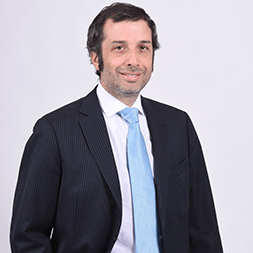

Chief legal officer and ethics officer | Engie Chile



Fernando Valdés
Chief legal officer and ethics officer | Engie Chile
What are the most significant cases or transactions that your legal team has recently been involved in?
During the last year, we have been working hard on a couple of different files associated to the decarbonisation plan launched by ENGIE. In a nutshell, ENGIE Chile is pursuing to materialise an ambitious investment plan in renewable power assets (1.4 Gigawatt), thus continuing with the efforts to lead Chile’s energy transition. According to such plan, we have ongoing contractual negotiations with a wide array of contractors, e.g., supply, BOP and LTSA contractors for both wind projects and battery energy storage systems (BESS). During the last 12 months we also closed a couple of M&A transactions to acquire both greenfield and brownfield renewable power assets. Furthermore, after both Covid and the Russia v. Ukraine crisis, it would be unrealistic not to say that litigation has also become part of our ‘business as usual’.
If existent, can you talk about you or your company’s efforts relating to renewability, sustainability or other environmentally friendly activities?
The International Finance Corporation (IFC), a member of the World Bank Group, recently announced the closing of a green and sustainability-linked loan granted to ENGIE Chile. Such financing amounted to US$ 400 million, sourced from IFC and investors under IFC’s Managed Co-lending Portfolio Program and from SDG-focused investor ILX Fund under IFC’s B Loan Program. It is a key joint effort that will help ENGIE to achieve its ongoing energy transformation plan, fostering the shift from fossil fuel-based power generation to renewable power generation. This transaction was IFC’s first sustainability-linked loan in Chile’s power market. It will certainly contribute to facilitating the supply of clean energy to the National Electric System (SEN), making it more efficient; providing greater security of supply and helping to mitigate the intermittency of renewable generation throughout the implementation of a new storage technology, namely BESS. The loan was structured with a tailormade sustainable performance objective regarding either the decommissioning or the technology reconversion of ENGIE Chile’s remaining coal-fired generation assets, contributing to climate change mitigation by reducing greenhouse gas emissions by more than 800,000 tons of CO2 per year. Moreover, ENGIE Chile committed with IFC on two key elements of our corporate decarbonisation strategy, that will serve a targets for non-financial indicators on emissions and a specific diversity standard (the latter will incentivise more women join ENGIE Chile).
As we live in a fast-paced world today, what skills will a corporate legal team need to succeed in the modern in-house industry?
Towards the ENGIE internal client´s needs, anticipation is key. We actively look for the right balance between being able to timely anticipate -and mitigate- the risks present in the markets ENGIE belongs to.
Regarding the management of ENGIE, I strongly believe that being a trusted and strategic advisor is a ‘must have’. A member of the corporate legal team must be someone able to assertively express a sound opinion and give pragmatic legal advice (even a no if need be), thus adding value to the strategy pursued by the company.
Last but not least, in regard to the in-house legal team, leading by example is perhaps the most important skill. More concretely, making decisions, picking the right (and diverse) people and guiding/developing and giving continuous feedback to them. I believe that it is essential to ask perceptive and strategic questions enabling the team to quickly develop the tailormade legal solutions needed for the success of the business. Finally, always giving credit to the team, especially to those running the extra-mile, is of vital importance.
Chief legal officer – ethics | ENGIE Energía Chile